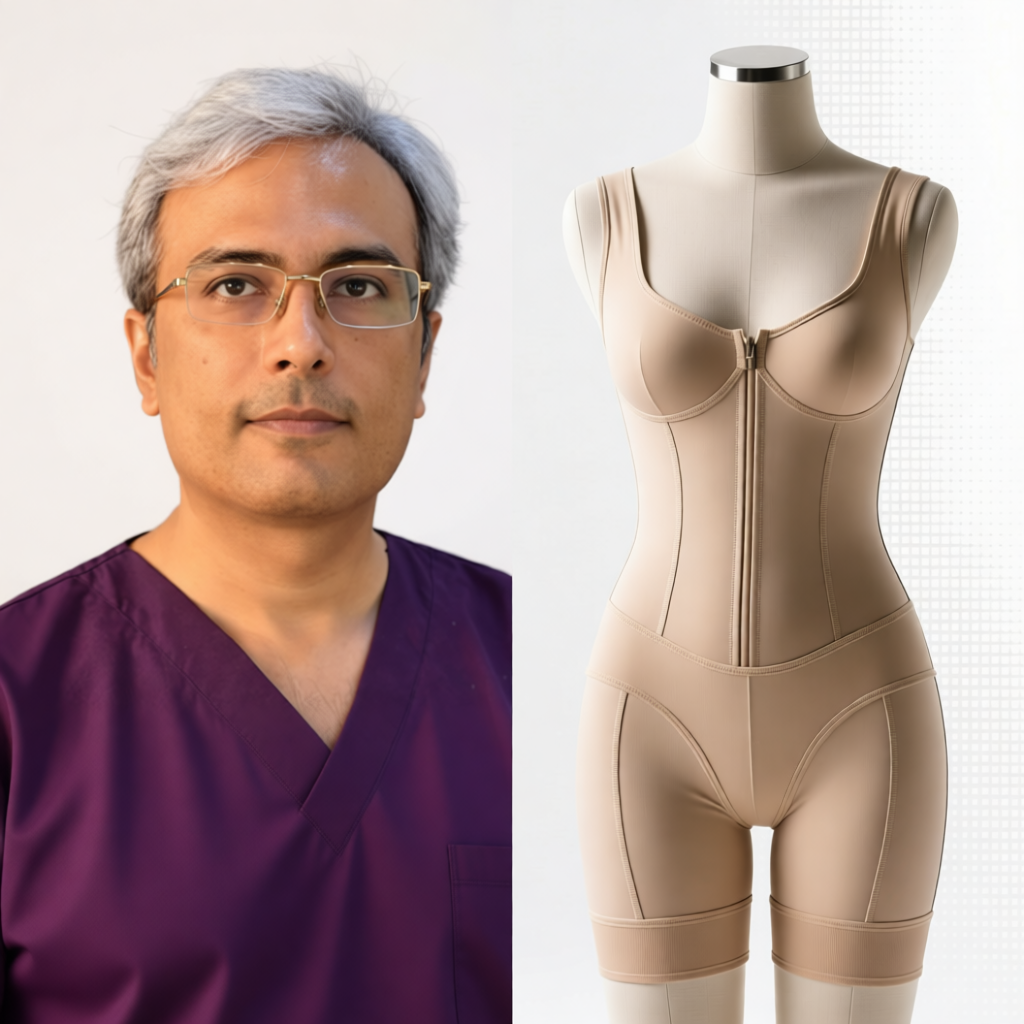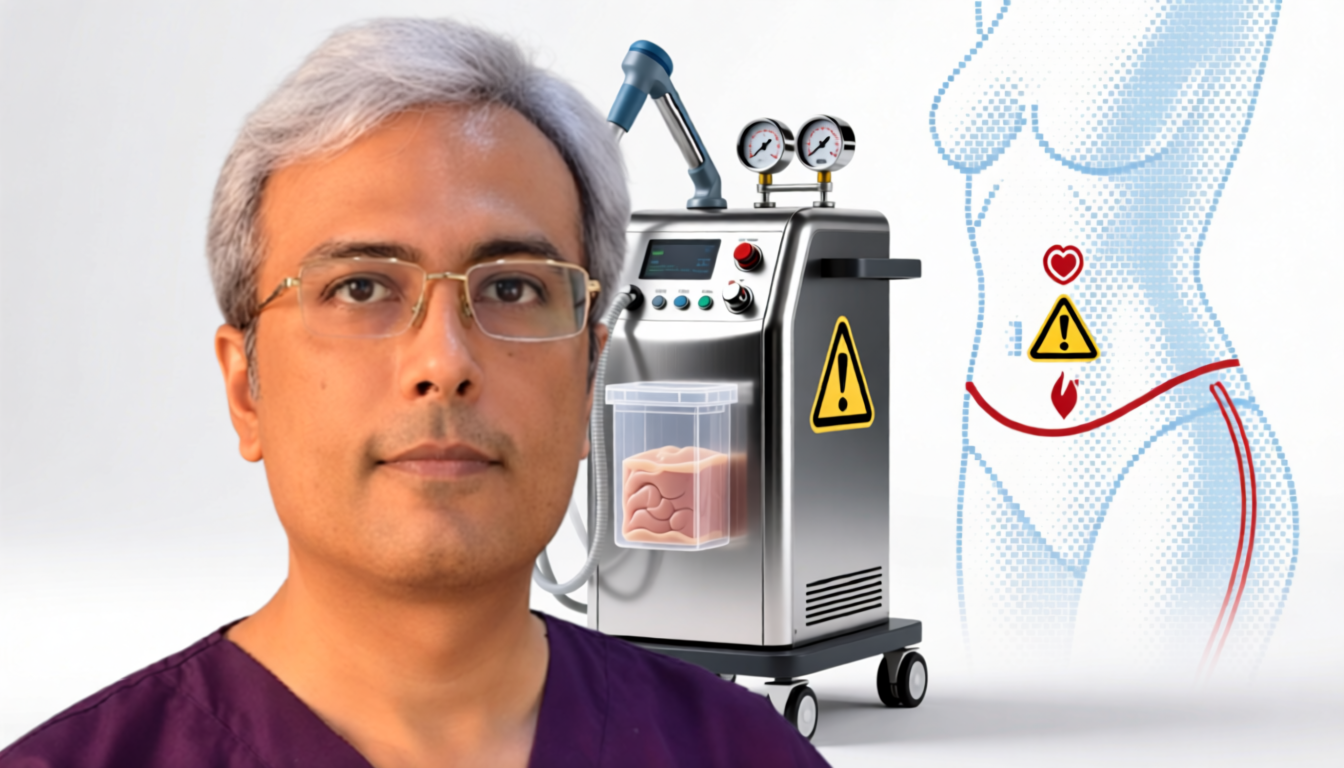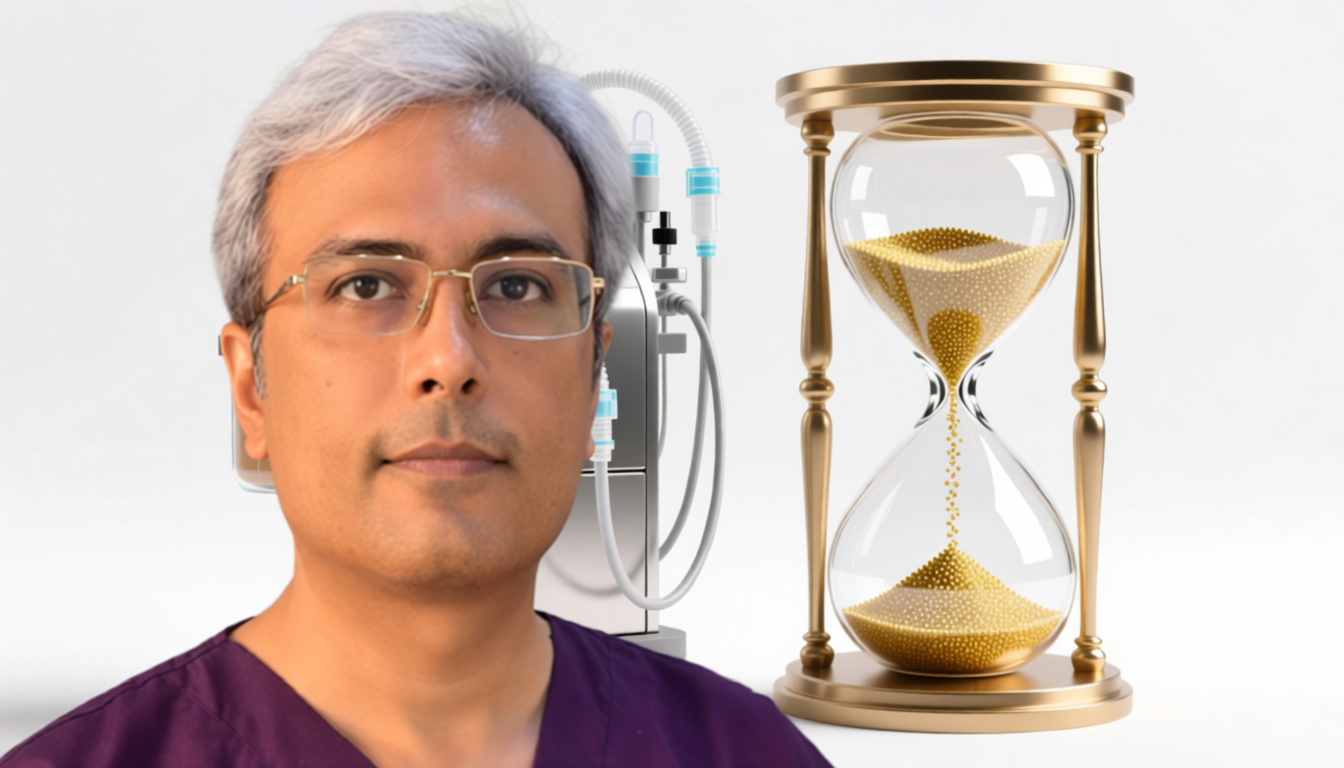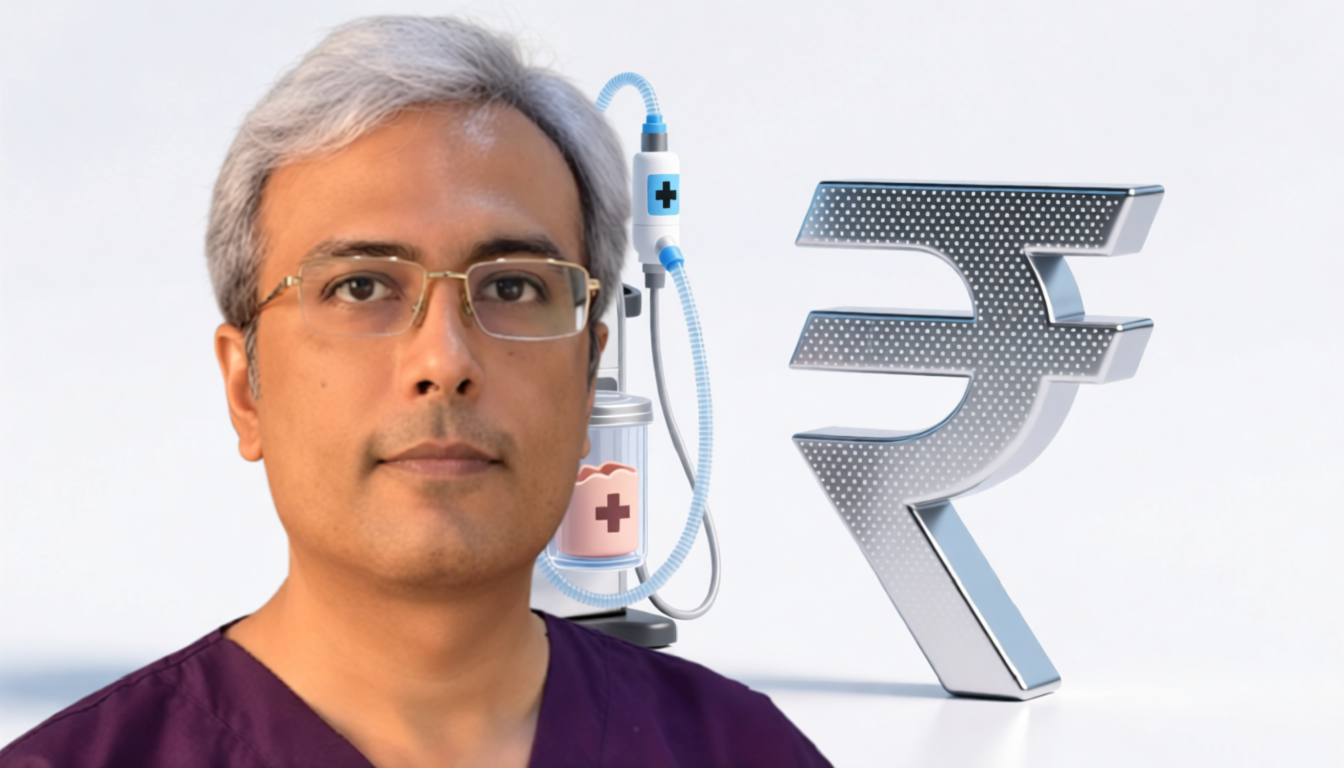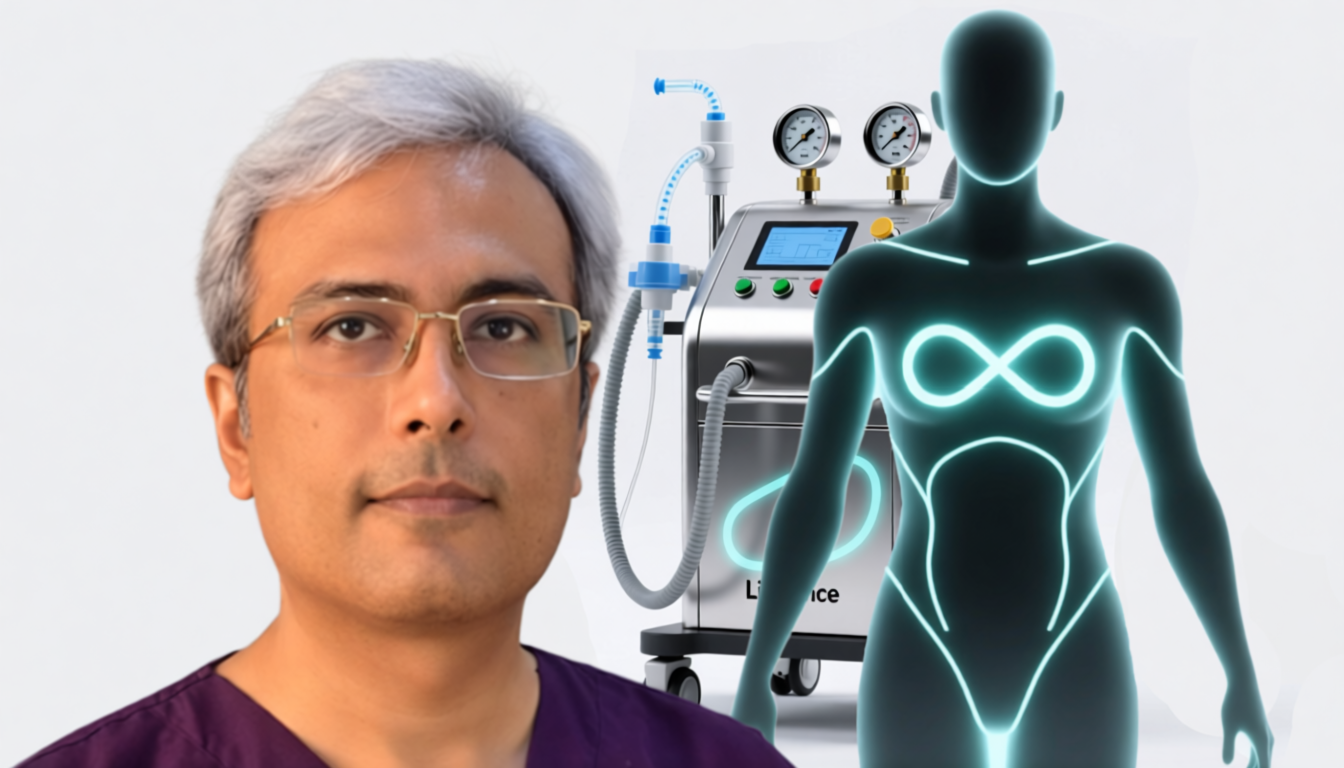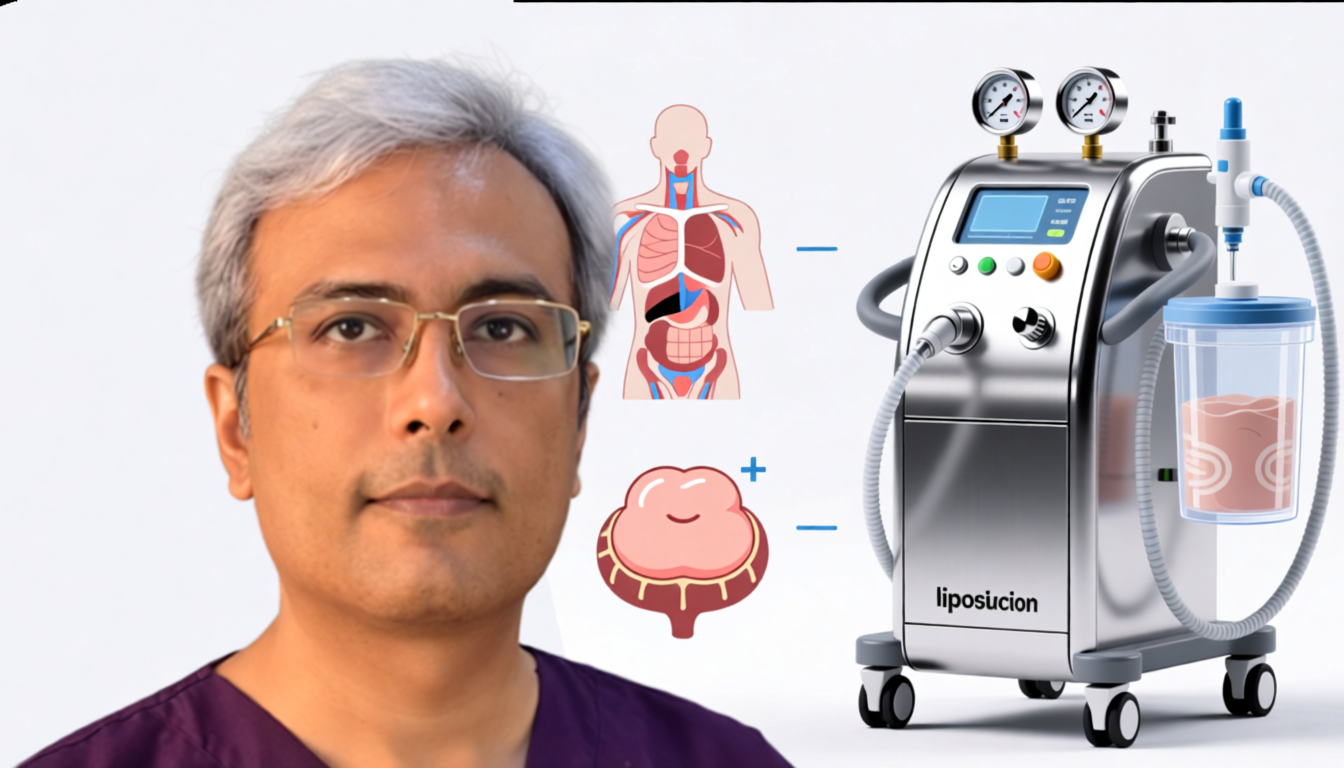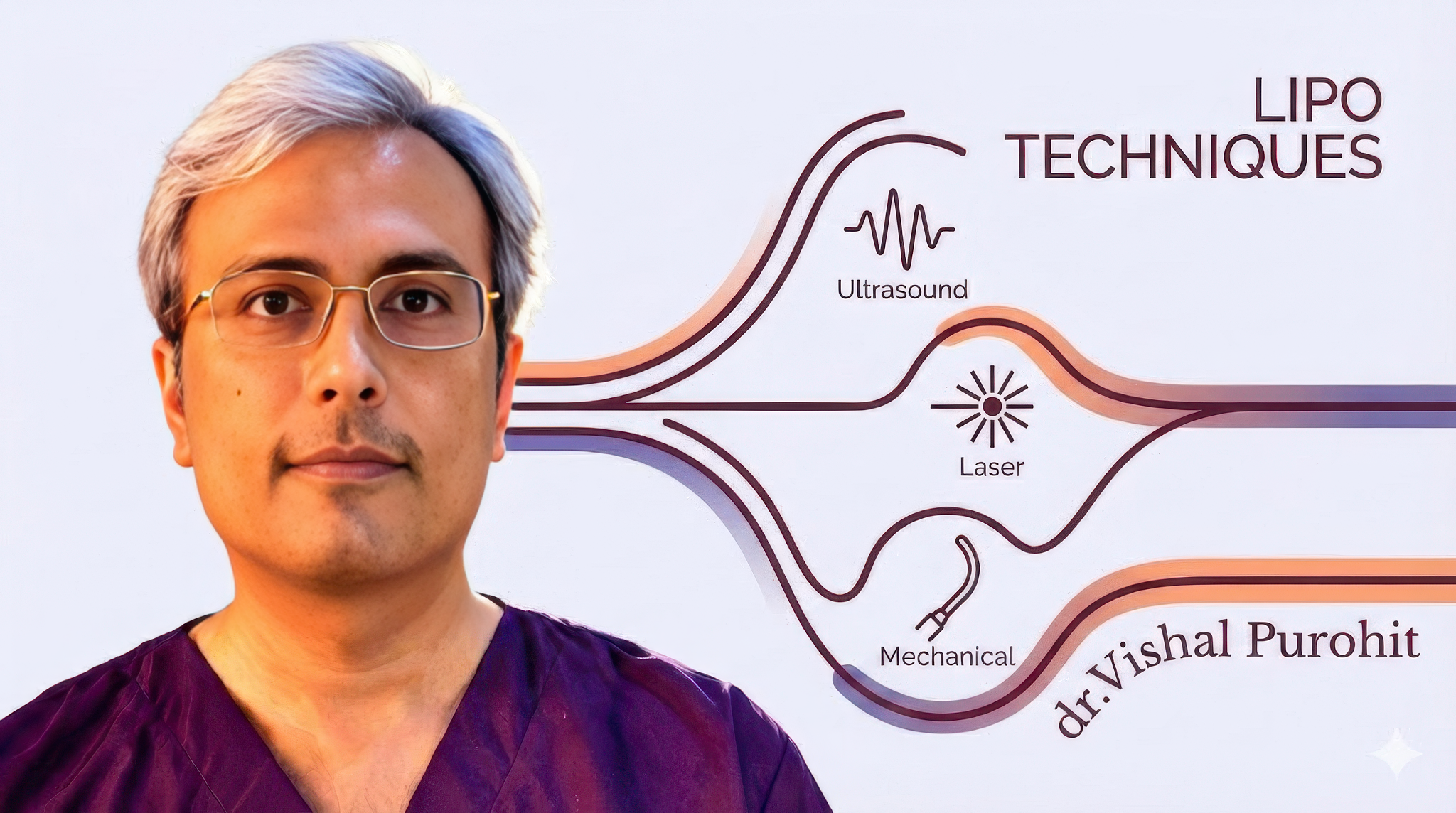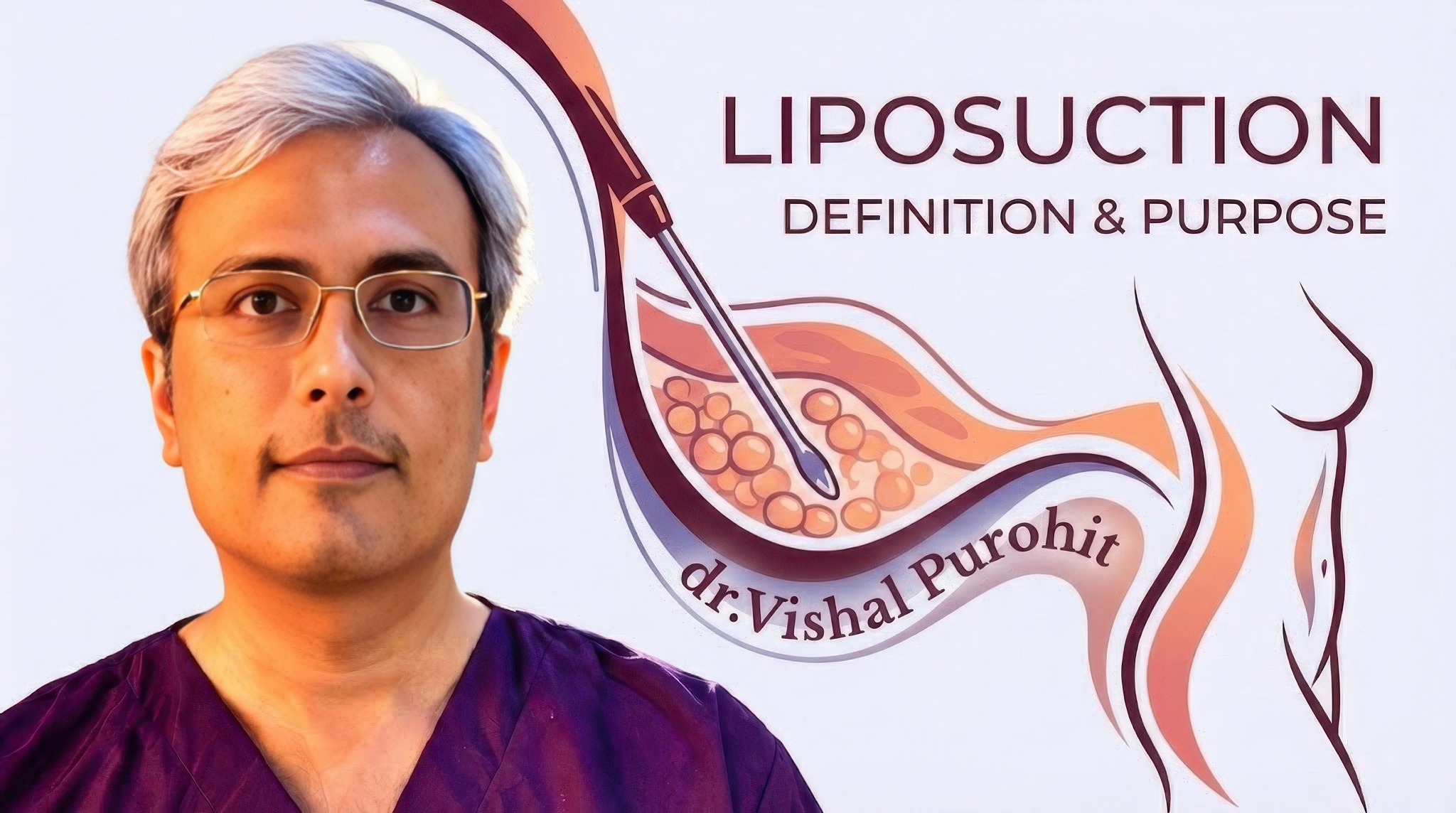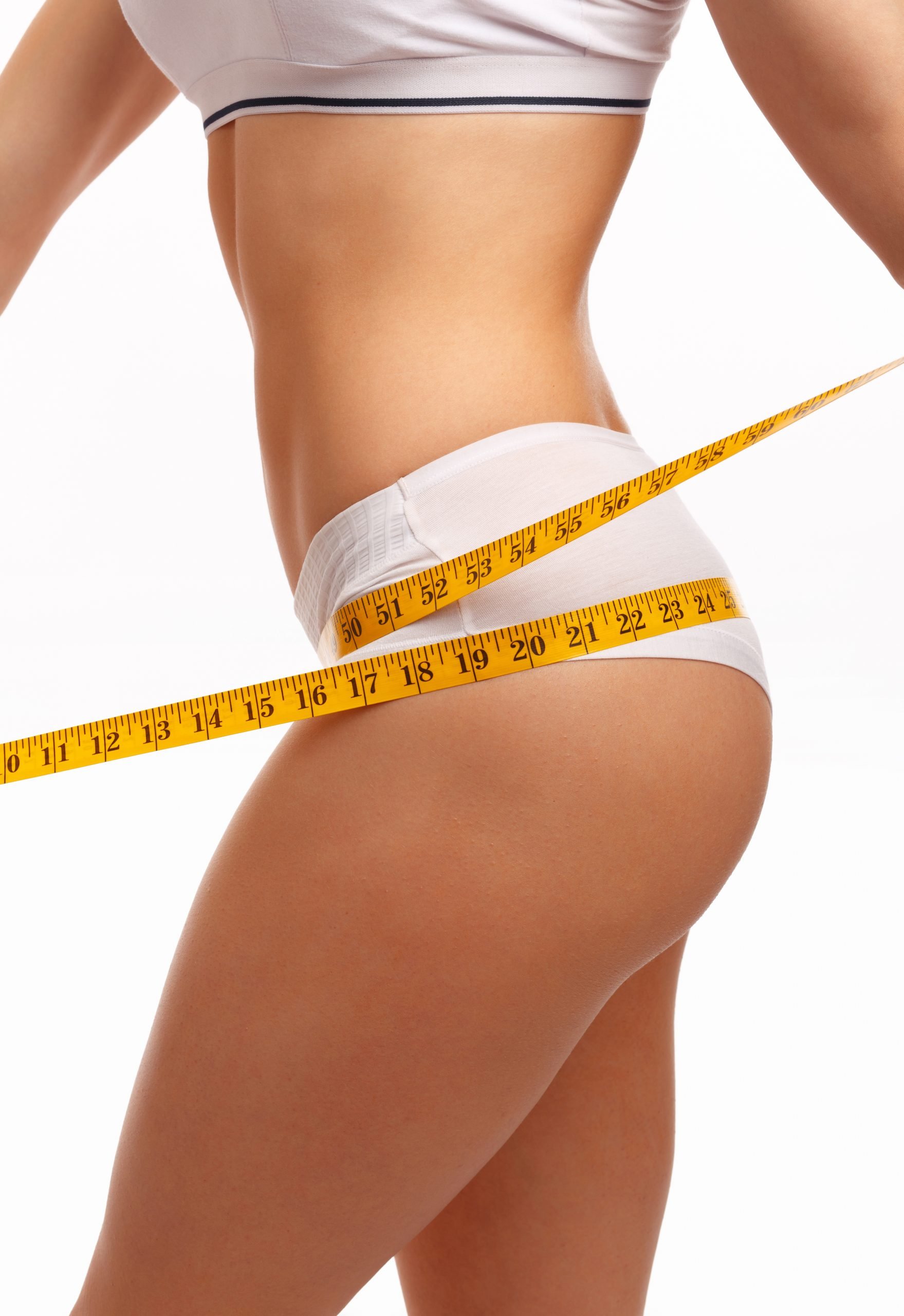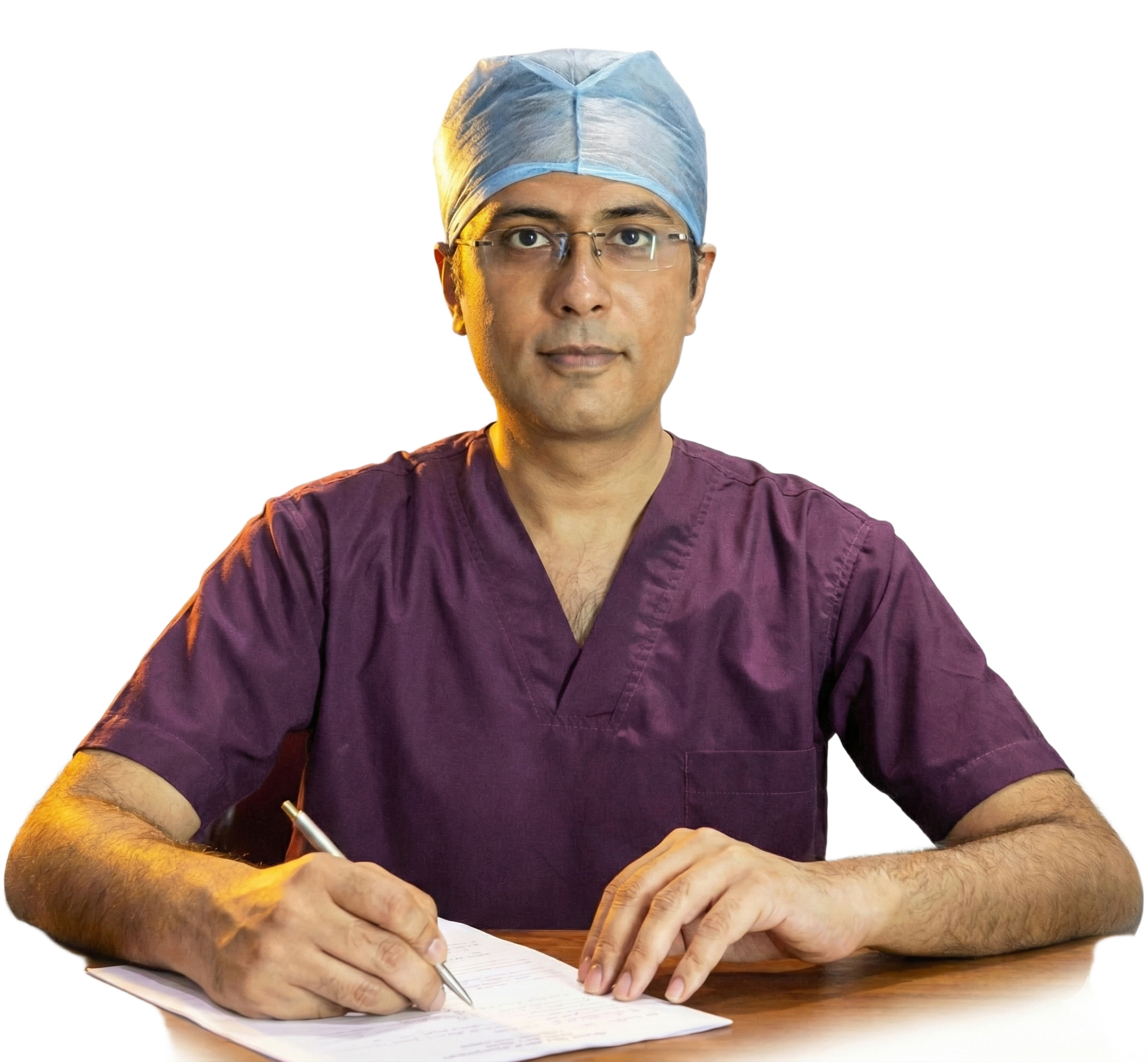Can I Gain Weight After Liposuction?
Hello, I’m Dr. Vishal Purohit, a practising MCh Plastic Surgeon based in Jaipur. Today, I’m going to address one of the most common questions I hear from my patients: “Can I gain weight after liposuction?” The answer isn’t as straightforward as you might think! Let’s dive in and explore the topic ‘Weight gain after liposuction‘ together.
What is Liposuction?
First things first, let’s clarify what liposuction is. Liposuction is a cosmetic surgical procedure designed to remove excess fat deposits from certain parts of the body that are resistant to diet and exercise. This procedure can help reshape specific body areas, enhancing your body contours and proportion. During the procedure, a plastic surgeon makes small incisions in the skin and inserts a thin, hollow tube called a cannula into the targeted area. The cannula is used to break up and suction out fat cells from the body.
Liposuction is most often done on the stomach, thighs, hips, arms, chin, and chin. It is often used to change the shape of the body and get rid of fat that won’t go away with diet and exercise.
The Weight Gain Myth
One of the biggest misconceptions about liposuction is that it’s a ticket to a permanently slim figure without any lifestyle modifications. That’s simply not true! While liposuction does remove fat cells from your body, it does not prevent weight gain in the future.
Common misconceptions about liposuction
- Liposuction is a weight loss solution (misconception): Liposuction is not a weight loss solution and should not be used as a substitute for healthy habits such as regular exercise and a balanced diet. It is only meant to remove localised areas of fat that are difficult to target through traditional weight loss methods.
- Liposuction is a quick fix (misconception): Liposuction is a surgical procedure that requires a recovery period and proper aftercare. It is not a quick fix and should not be taken lightly.
- Liposuction can remove cellulite (misconception): Liposuction is not a treatment for cellulite, which is caused by the deposition of fat along fibrous bands that connect the skin to the underlying muscle. Cellulite can only be treated through other methods such as laser therapy, massage, or topical creams.
- Liposuction results are permanent (misconception): While liposuction can permanently remove fat cells from the body, it does not prevent existing fat cells from depositing more fat. Moreover, liposuction is only done in a specific area. The fat cells of other areas may deposit fat and swell up. So, maintaining a healthy lifestyle after liposuction is important to prevent fat cells from accumulating more fat.
- Liposuction can treat obesity (misconception): Liposuction is not a treatment for obesity and is only recommended for patients who are close to their ideal weight and have localised areas of fat that are difficult to target through diet and exercise. Obesity involves the deposition of fat around the internal organs as well. Liposuction only removes the skin fat; it does not remove intra-abdominal fat.
- Liposuction is a painful procedure (misconception): While there may be some discomfort during the recovery period, liposuction is typically performed under anaesthesia and is not considered a painful procedure.
- Liposuction can replace diet and exercise (misconception): Liposuction should not be used as a substitute for healthy habits such as regular exercise and a balanced diet. It is only meant to enhance the body’s appearance and remove localised areas of fat that are difficult to target through traditional weight loss methods.
Let’s come to the question at hand.
Can You Gain Weight After Liposuction?
Yes, it’s entirely possible to gain weight after liposuction. When you gain weight, you’re not actually creating new fat cells but rather expanding the existing ones. Since liposuction removes some of these cells, you might gain weight in different areas than you did before the procedure. It’s important to remember that while liposuction can improve body shape and contour, it’s not a method for weight loss or a substitute for a healthy lifestyle.
Although the myth-busting answers may have provided some insight, I would like to talk a little more about how liposuction actually works.
- Fat is stored in fat cells. They accumulate fat and become larger. They don’t increase in number. i.e., whether you are slim or plump, the number of fat cells remains the same; only their size increases.
- Liposuction works by removing excess fat from specific areas of the body. During the procedure, a plastic surgeon makes small incisions in the skin and inserts a thin, hollow tube called a cannula into the targeted area. The cannula is used to break up and suction out fat cells from the body.
- But, the catch is that all the fat is not removed. Only extra fat is removed. Fat below the skin is actually good and is required for some very important physiological functions. It is needed as a cusion for the muscles and bones, as an insulator to conserve heat, as a storehouse of energy, and lastly, it gives the skin its smooth texture.
- Liposuction can be done in a number of ways, such as tumescent liposuction, ultrasound-assisted liposuction, and laser-assisted liposuction. In tumescent liposuction, a solution with local anaesthesia, adrenaline, and saline is injected into the area being worked on. This solution helps to numb the area, reduce bleeding, and make it easier to remove the fat.
- Once the cannula is inserted into the targeted area, it is moved back and forth to break up the fat cells. The fat cells are then suctioned out of the body through the cannula. The process is done until the desired amount of fat has been removed.
- After the procedure, the patient will need to wear a compression garment to help reduce swelling and support the healing process. They will also need to rest and avoid strenuous activity for several weeks to allow the body to heal properly.
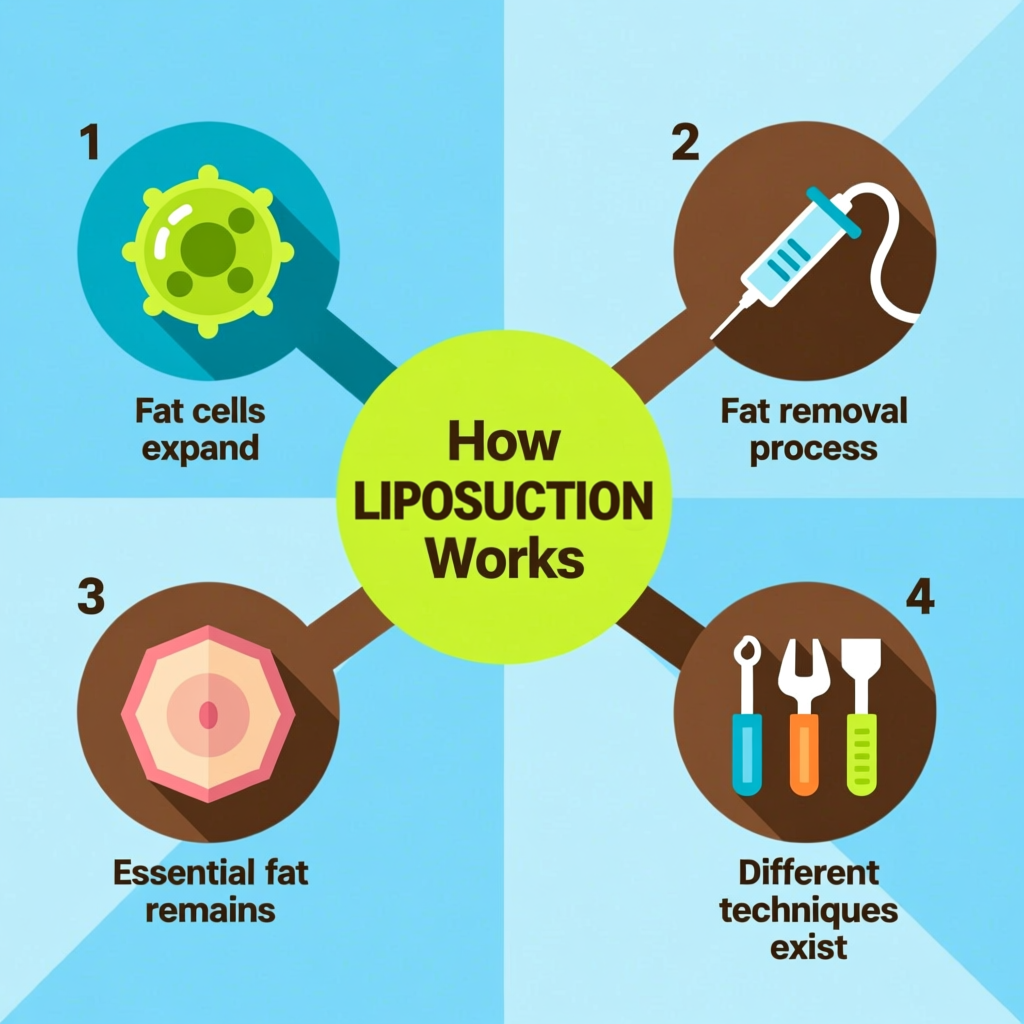
Reasons for Weight Gain Post-Liposuction
Weight gain can occur after liposuction if certain factors are not addressed. Some of the factors that contribute to weight gain after liposuction include:
- Poor diet: A healthy diet is essential for maintaining a stable weight. If you consume more calories than your body needs, you will gain weight. Liposuction does not prevent weight gain if you continue to eat a diet high in calories, sugar, and unhealthy fats.
- Lack of exercise: Exercise helps to burn calories and build muscle, which can help to maintain a healthy weight. If you are not physically active, you are more likely to gain weight after liposuction.
- Hormonal changes: Hormonal changes can affect your body’s metabolism and increase the likelihood of weight gain. For example, hormone levels can change during pregnancy, menopause, or as a side effect of birth control, which can cause women to gain weight after liposuction.
- Stress: Chronic stress can lead to weight gain, as it can increase cortisol levels in the body. Cortisol is a hormone that can lead to increased fat storage in the abdomen.
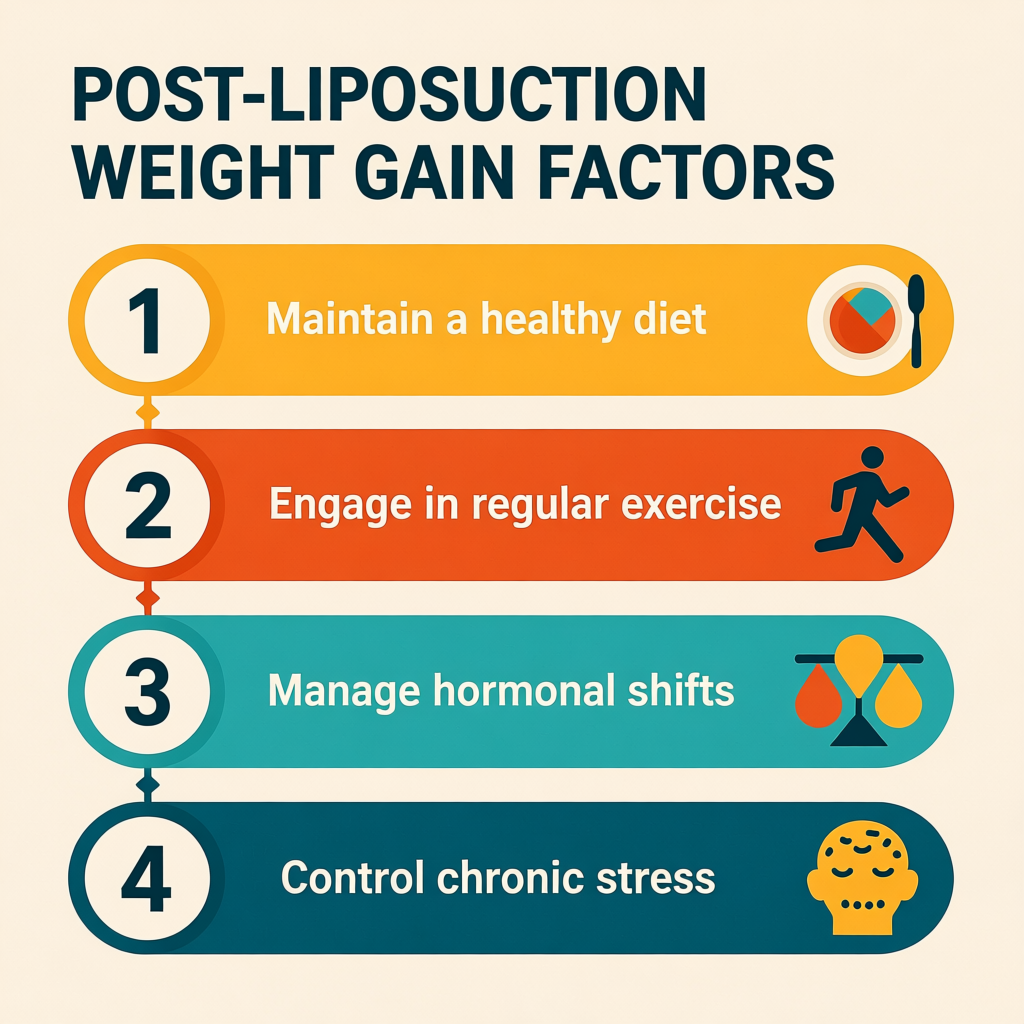
Realistic Expectations after Liposuction
- Firstly, it is important to understand that liposuction is not a weight-loss solution. It is a body contouring procedure that targets specific areas of the body to remove stubborn fat that cannot be eliminated through diet and exercise alone. Therefore, it is crucial to maintain a healthy lifestyle after the surgery to avoid gaining weight and losing the desired results.
- Secondly, the results of liposuction may not be immediately noticeable. It is common to experience swelling, bruising, and discomfort after the procedure, and it may take several weeks or months for the full results to appear. Therefore, it is important to be patient and follow the post-operative instructions provided by the surgeon to ensure proper healing.
- Thirdly, the results of liposuction may vary from person to person. The amount of fat that can be removed and the final outcome depend on various factors, such as the patient’s age, skin elasticity, and the area of the body being treated. Therefore, it is important to have realistic expectations and discuss the expected outcomes with the surgeon during the consultation process.
- Lastly, liposuction is not a permanent solution. While the fat cells removed during the procedure will not return, it is still possible to gain weight in other areas of the body. Therefore, it is important to maintain a healthy lifestyle, including a balanced diet and regular exercise, to ensure long-term results.
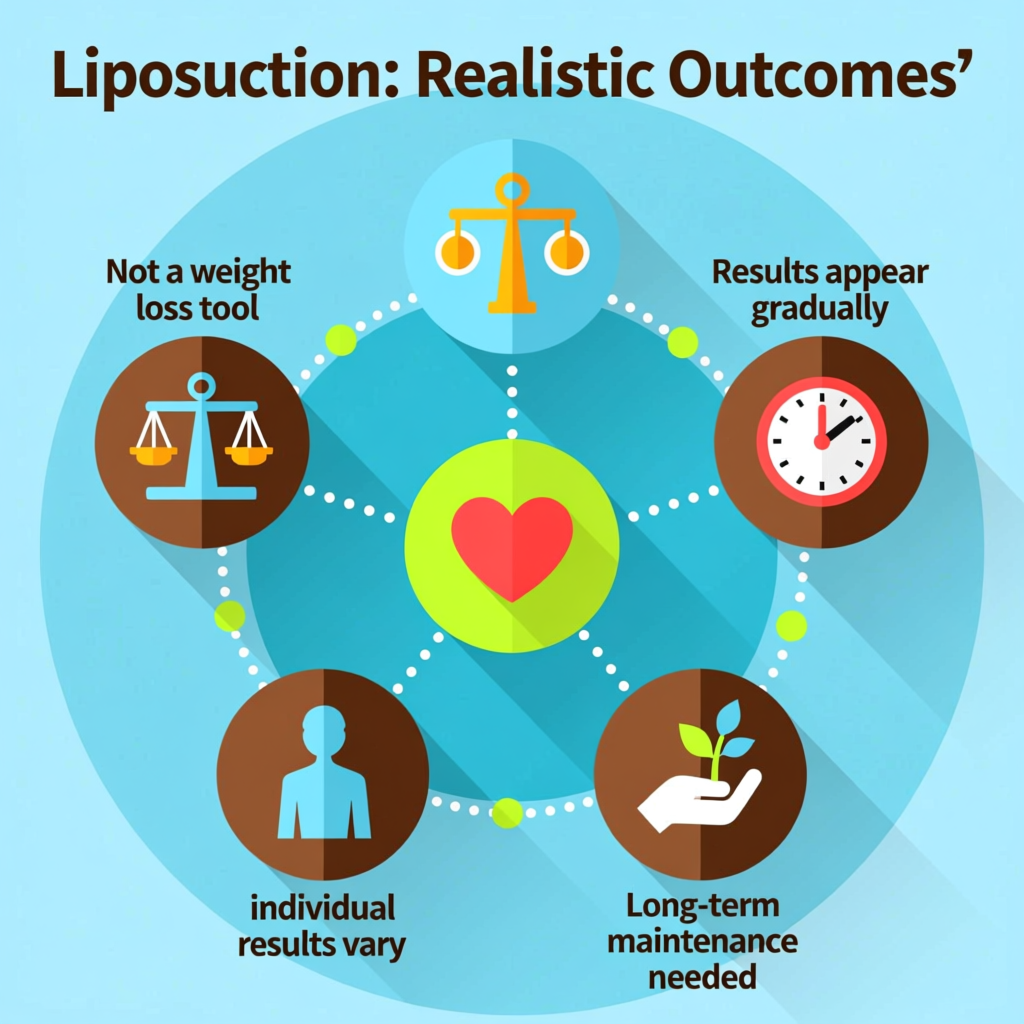
Tips to Maintain Weight Post-Liposuction
Here are 10 tips to help you maintain your results after liposuction:
- Follow your surgeon’s post-operative instructions: Your surgeon will give you specific instructions on how to care for your body after the procedure. Follow these instructions carefully to ensure a smooth recovery.
- Wear compression garments as directed: Compression garments help reduce swelling and provide support to the treated areas. Wear them as directed by your surgeon.
- Maintain a healthy diet: Eat a balanced diet that is rich in lean protein, fruits, vegetables, and whole grains. Avoid foods high in fat and sugar.
- Drink plenty of water: Drinking water helps flush toxins out of your body and keeps your skin hydrated.
- Exercise regularly: Regular exercise helps maintain your weight, tone your muscles, and prevent the accumulation of fat in the treated areas.
- Don’t smoke: Smoking can slow down your body’s healing process and increase the risk of complications. Avoid smoking for at least a few weeks after the procedure.
- Get enough sleep: Your body needs time to heal after the procedure. Getting enough sleep can help speed up the healing process.
- Manage stress: Stress can affect your body’s ability to heal. Practise stress-management techniques such as meditation, deep breathing, or yoga.
- Avoid weight gain: Gaining weight after liposuction can reverse the results of the procedure. Maintain a healthy weight through diet and exercise.
- Attend follow-up appointments: Your surgeon will schedule follow-up appointments to monitor your progress and ensure that you are healing properly. Attend these appointments as directed.
Wrapping Up
Liposuction can be a powerful tool to help reshape your body and improve your self-confidence. However, it’s not a magical cure for weight gain. Staying healthy and maintaining your weight post-liposuction requires a commitment to a balanced diet, regular exercise, and overall healthy lifestyle habits.
Remember, every person’s body responds differently to liposuction. If you’re considering this procedure or have any questions about weight gain after liposuction, I’m here to help. Feel free to reach out to me, and let’s discuss your concerns and goals.
Stay healthy, stay beautiful!

